Air conditioners make our life pleasant during those hot summer days. But when the seasons change and the temperature drops, is it still practical to use your air conditioning unit? We asked the experts to give their insights about this. Read on to see what we've learned!
Most manufacturers discourage the use of their ACs if the outside temperature is already 60 degrees or lower. At this temperature, the coils of the AC will start to form ice crystals which will, in turn, affect the refrigerant and how it behaves. Running your AC at low temperatures can also damage critical components because of this freezing.
So now that you know that it's not advisable to run your AC in cold weather, let's dive deeper into this topic and learn more about the science and how to prevent any issues that your AC could face during the winter season. Put your reading glasses on and let's get started!
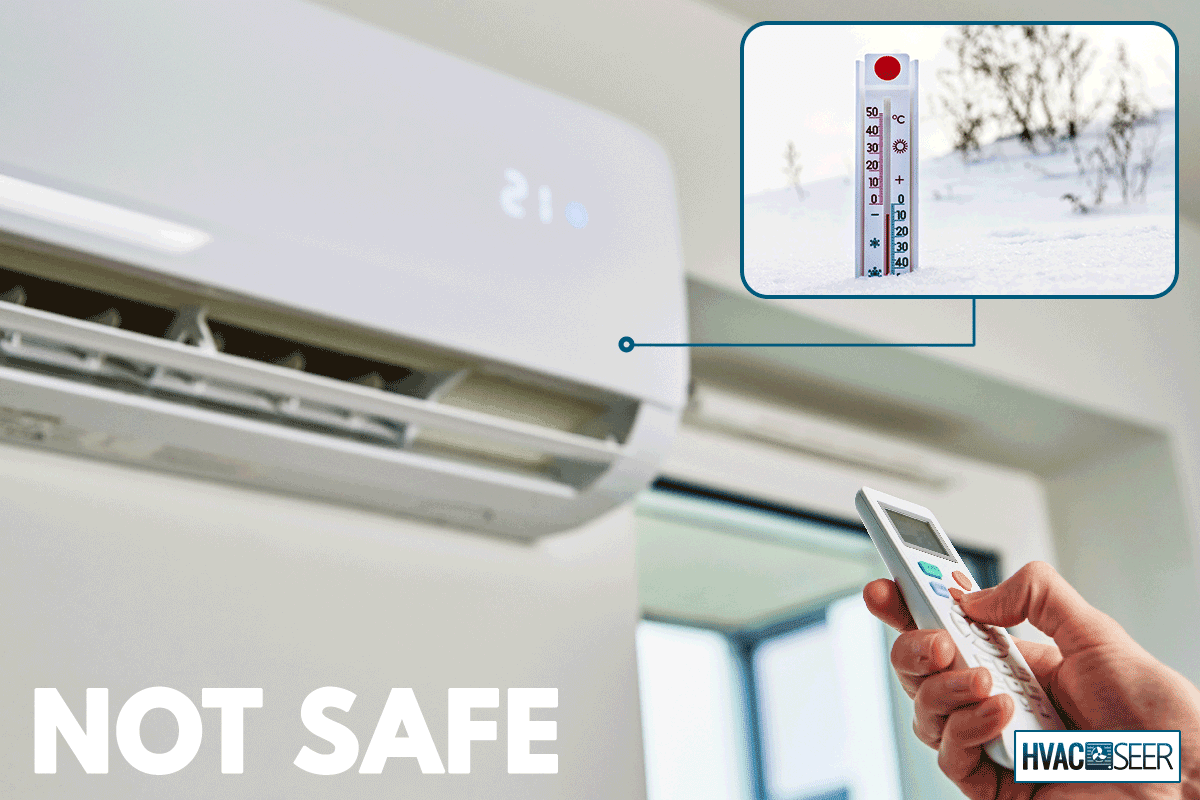
Problems Associated With Running Your AC In Cold Weather
Cold weather can affect your AC. It may lead to repairs that can be costly. A lot of factors are at play, including the build of the AC and its optimum operating temperature. Let's go over some of the issues you may encounter when you run your air conditioner in cold weather.
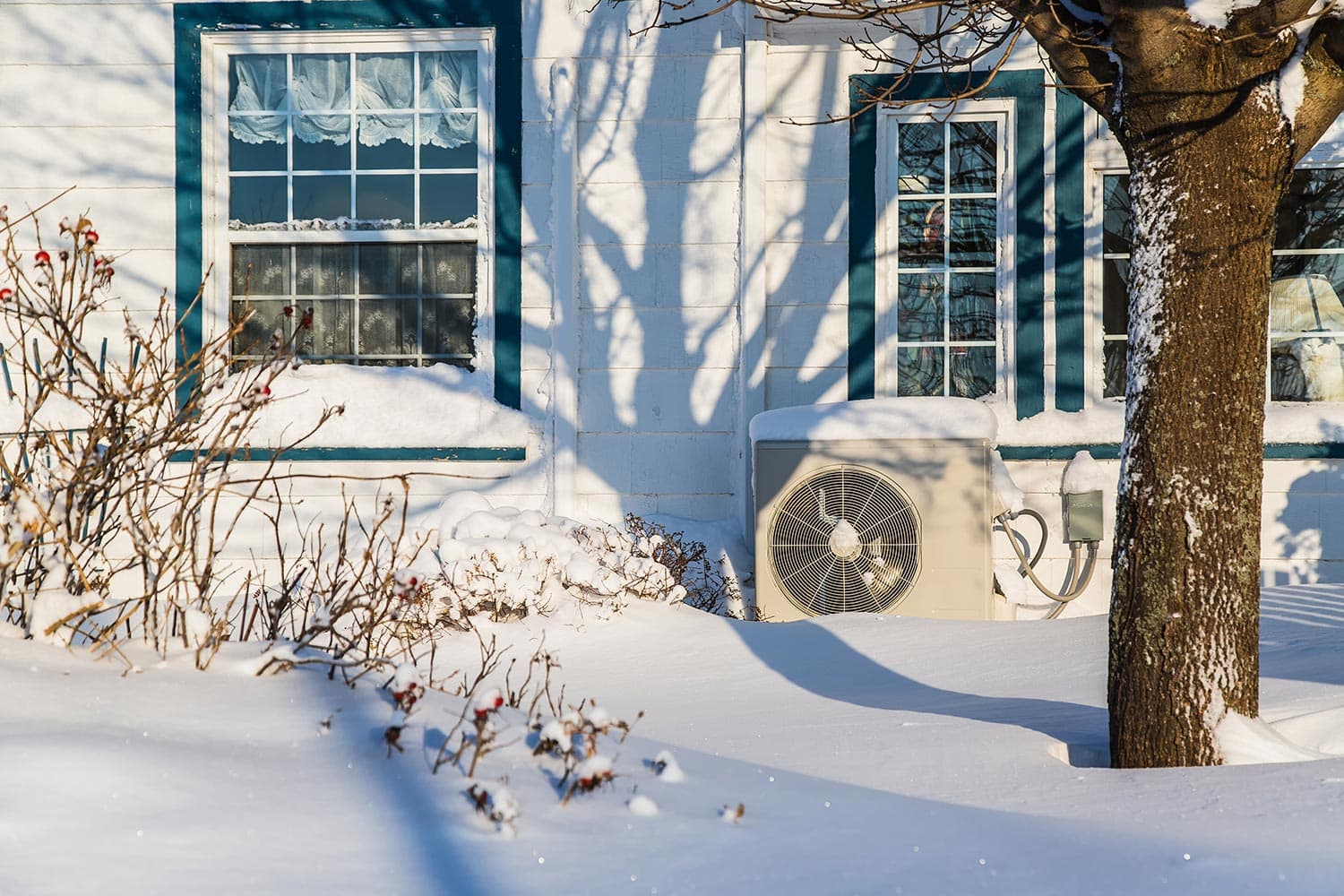
Coil Freezing
You may have noticed liquid dripping from the side of your air conditioning unit whenever you are running it. That liquid is the condensation from the outdoor copper coils. In cold weather, this liquid condensate can freeze and accumulate on the coil, making air circulation difficult for your unit.
Additionally, this freezing of coils can make the copper brittle and become prone to punctures. And when your coils become punctured, no matter how small the puncture is, it will have a major effect on your AC's performance.
Overheated Compressor
As with any other machine, your air conditioning unit uses heat to function properly. The low temperatures that the winter season brings only do more damage than good to your unit. The compressor will now have to work overtime to keep the optimal working temperature of your AC.
Overworking your compressor will shorten the overall lifespan of your AC unit. This will also translate to costly repairs and irreversible damage to not only the compressor but also to other critical components of your air conditioning unit.
Lubrication Issues
Lubricants are an integral part of a compressor. They help lubricate components and help the compressor run smoothly without any issues. However, cold weather and low temperatures can negatively impact the efficiency of lubricants.
Lubricants can thicken and become viscous in low temperatures, which may affect their lubricating properties. They can also clog important valves and restrict the airflow, making the compressor work harder to run the entire AC unit.
This issue might not seem important, because you might not be able to see the lubricant. But continuous neglect of this issue can render your compressor unusable.
Ambient Temperature Sensor Error
Due to technological developments, modern air conditioners have temperature sensors that turn off the whole unit once a specific temperature has been reached. Some AC owners use a third-party device to circumvent this sensor and run the unit at much lower temperatures.
These types of devices can be costly for your unit in the long run. Continuous running of the AC at extreme settings can damage its efficiency and could also void your warranty for the unit.
How To Take Care Of Your AC During The Winter
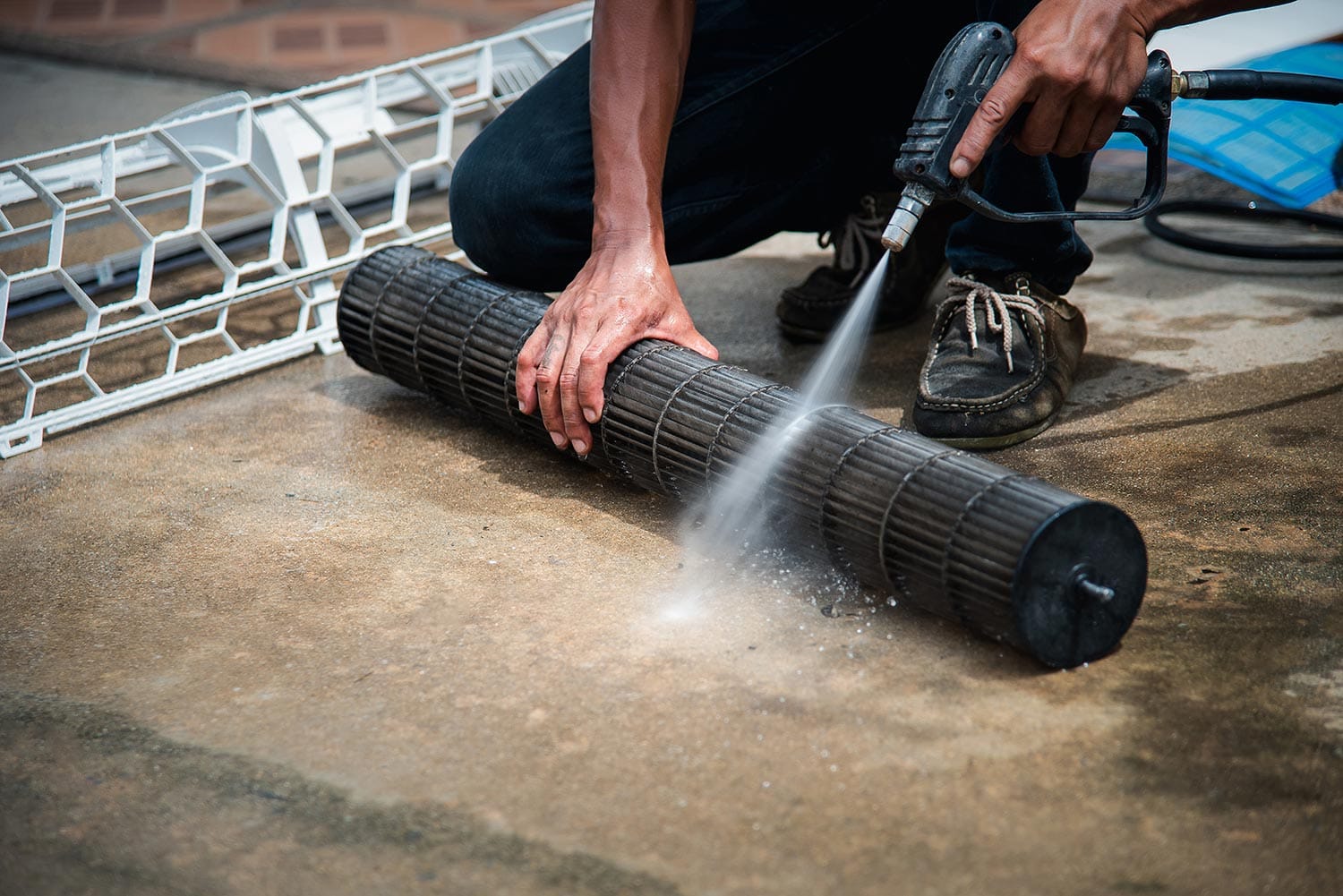
Your air conditioning unit kept you and your family comfortable, all summer long. The cold weather is now fast approaching, and you're shifting your focus from the AC to the furnace. Even so, it is still important to take care of your trusty AC during the winter season so that it is ready by the time summer returns.
Clean It Off
After using it for an extended amount of time during the summer season, your AC unit will surely be dirty. Examine the unit for any dust build-up or any wear and tear that might need urgent attention. If no damages were found, you may proceed to clean the unit.
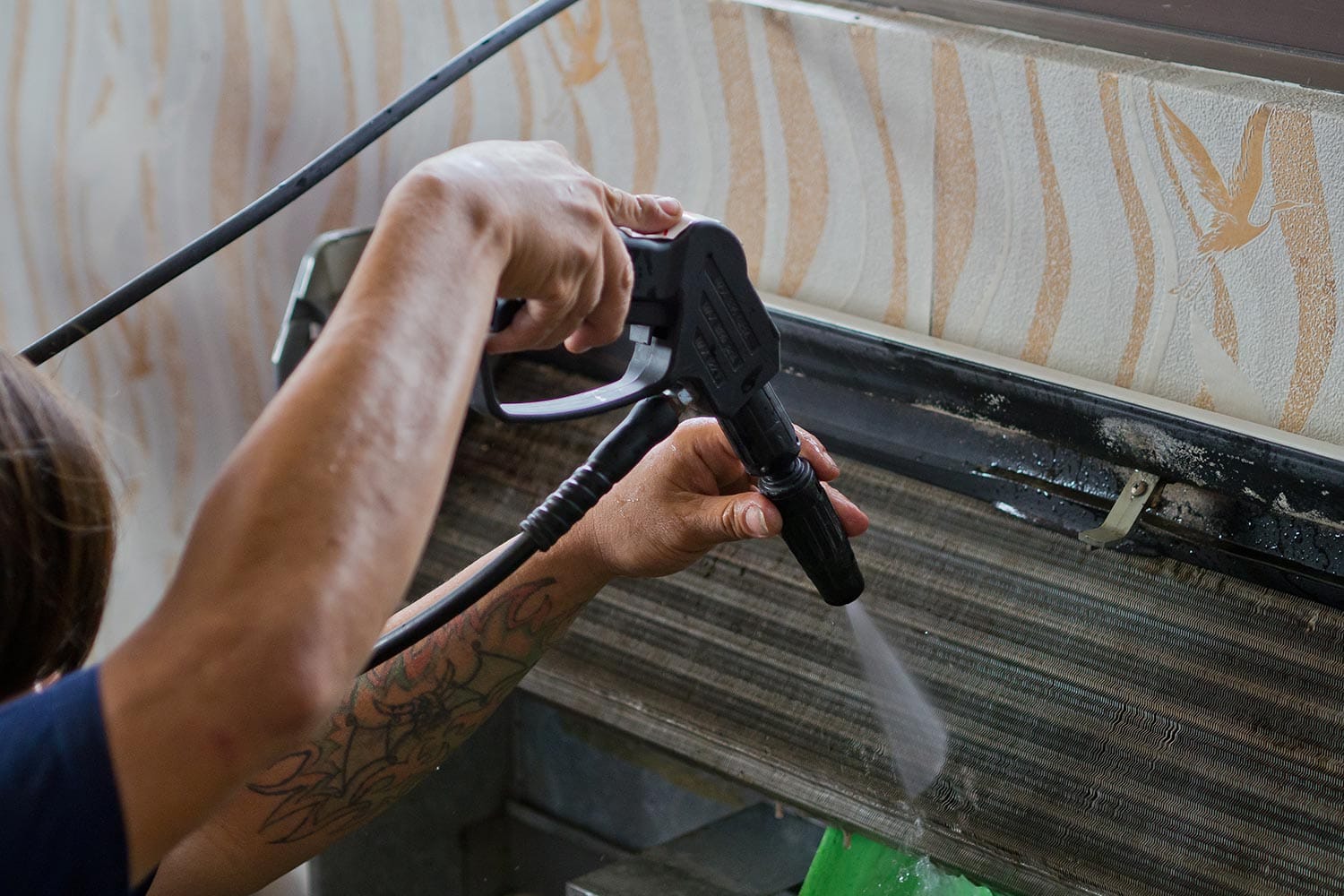
You can start by hosing the unit and washing the outside using a pressure washer to remove any dirt and dust. Be careful, however, not to pressure wash critical components like the fins or coils. The pressure of the water can damage those components, and this can result in costly future repairs.
Check out this Sun Joe Electric High-Pressure Washer on Amazon.
Remove Debris
Removing debris from your unit is important when you're using it and especially important when you're not using it. Debris like twigs, leaves, and dirt left on your unit can become a liability. Small critters might potentially inhabit your unit and this can cause damage to your system. Fungus and molds can also grow due to the debris being left around your AC unit.
To combat this, you can clear all debris using a leaf blower. Not only is it convenient to use a leaf blower, but the air itself can also reach in between the hard-to-access areas and remove dirt and dust build-up.
Click here to check out this BLACK+DECKER Electric Leaf Blower on Amazon.
Replace Air Filters
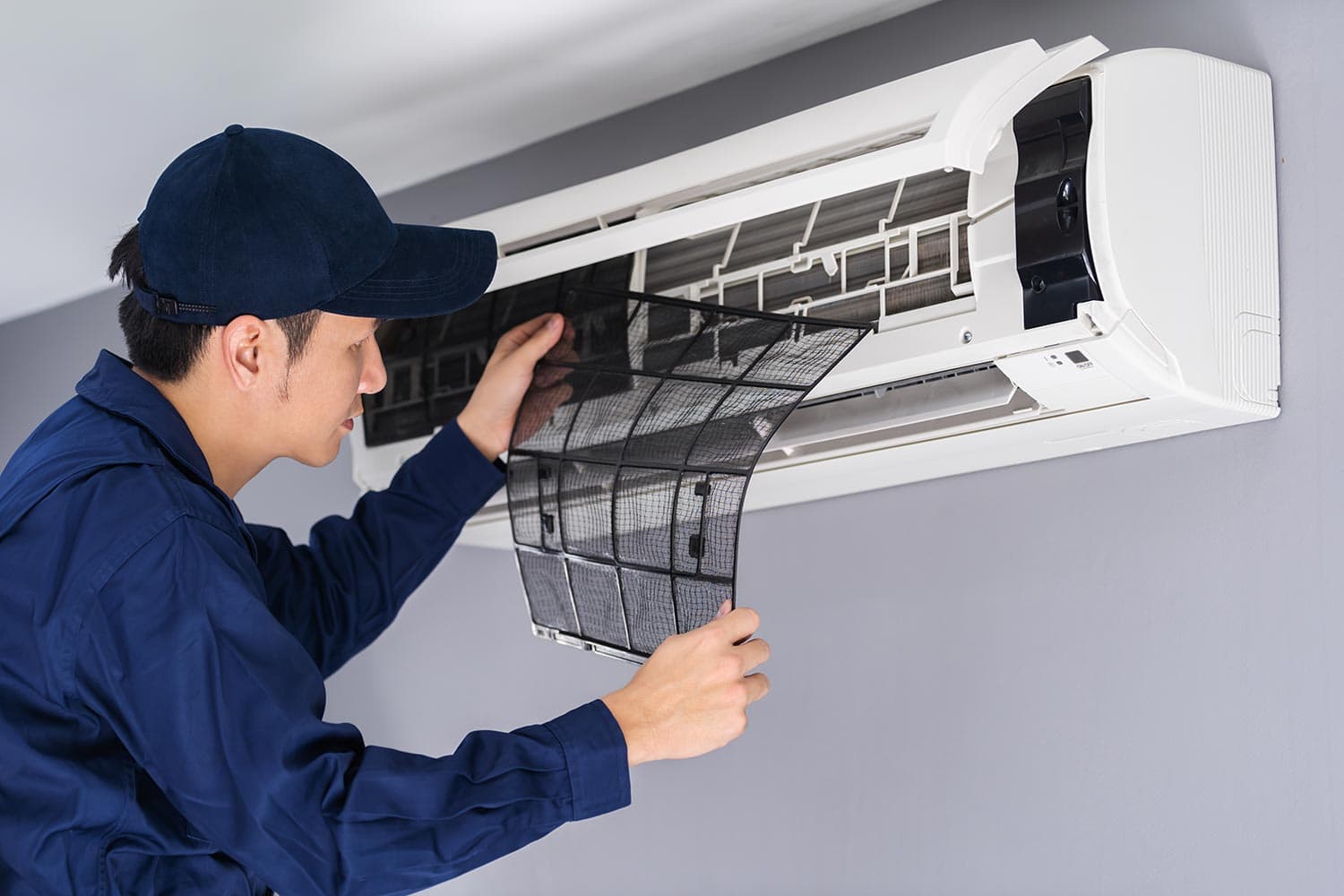
Replacing the filters should be a task you perform frequently for maintaining the efficiency of your unit. Try to do it with every change of the seasons. If you also use your air conditioning unit for heating in the winter, having a clean and working air filter can promote good airflow to your unit. This will mean efficient heating throughout every room in your home.
Cover The Unit
After cleaning your unit and replacing the filters, it is best to cover it up to maintain its cleanliness. You're not going to use it for the whole winter anyway, right? Might as well cover it for safe keeping. Covering your unit not only prevents debris from building up but also protects it from the cold weather.
Another quick tip in protecting your unit during the winter is to place a board on top with weight keeping it in place. This board will protect your unit from falling icicles that could potentially damage your unit.
Check out this COSFLY AC Cover on Amazon.
Store Window Air Conditioning Units
If you own a window-unit air conditioner, it is best to remove it from the window and store it somewhere warm and dry. Then, seal the area where it is normally located. This will help you maintain the warm air inside while also preventing any leaks of cold air into your home.
This step is not only applicable to the window where your window air conditioner sits. It is also applicable to all the other windows in your home. Making sure that all areas are sealed during the winter keeps your energy bills down while also making sure that your family is comfortable.
Book Preventive Maintenance Ahead of Time
Performing DIY maintenance procedures like the ones stated above is all well and good. But they do not replace the services a professional technician can provide. Even before the winter season starts, you can book an appointment with your technician and have them take a look at your unit.
The technician will provide you with relevant tips on keeping your unit safe and how to prepare it for the coming winter.
How Much Does It Cost To Repair A Broken AC?
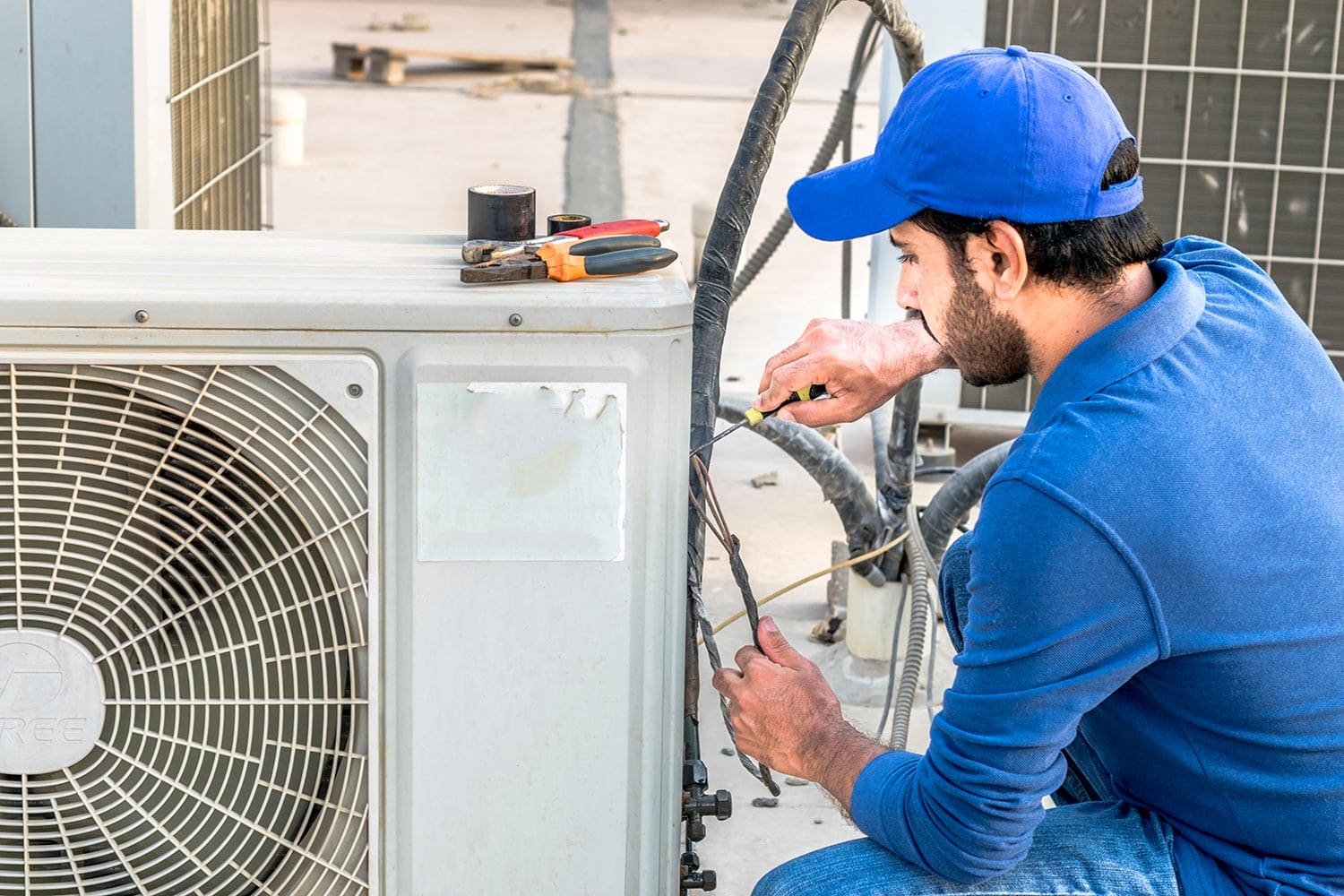
Air conditioning units do a lot of stuff for our benefit. Not only do they cool and heat our homes, but they also promote good air circulation and air filtration. If neglected, your AC can become a costly liability. Let's take a look at the average prices, according to Fixr, for repairing different components of your AC.
- Clogged Air Filter: $195
- Clogged AC Drain: $150
- Blower: $200
- Circuit Board: $250
- Refrigerant Recharge: $300
- Expansion Valve: $380
- Capacitor: $400
- AC Coil: $475
- Thermostat: $500
- Condenser: $600
- Fan Motor: $650
- Air Duct: $1,200
- Compressor: $1,200
- Freon Leak: $1,500
- Coil Leak: $2,000
As you can see, the prices of repairs gradually increase when the component in question becomes more critical to the system. This is the reason why you should always dedicate time and effort to preserving your air conditioning unit. Repair costs are not cheap, and you won't be able to enjoy the benefits of your AC when it needs repairs.
In Closing
The winter season can be challenging for AC unit owners. Remember, it's not smart to run your AC if the outside temperature is already 60 degrees or lower.
Every owner can do their part in preserving their ACs, so that when springtime rolls around, they can enjoy the full benefits of the upkeep. A simple DIY maintenance routine over the winter can positively impact the lifespan of your unit.
Prevention is better than a cure. Repair costs don't come cheap!
For more information on HVAC systems, we recommend reading these related articles:



